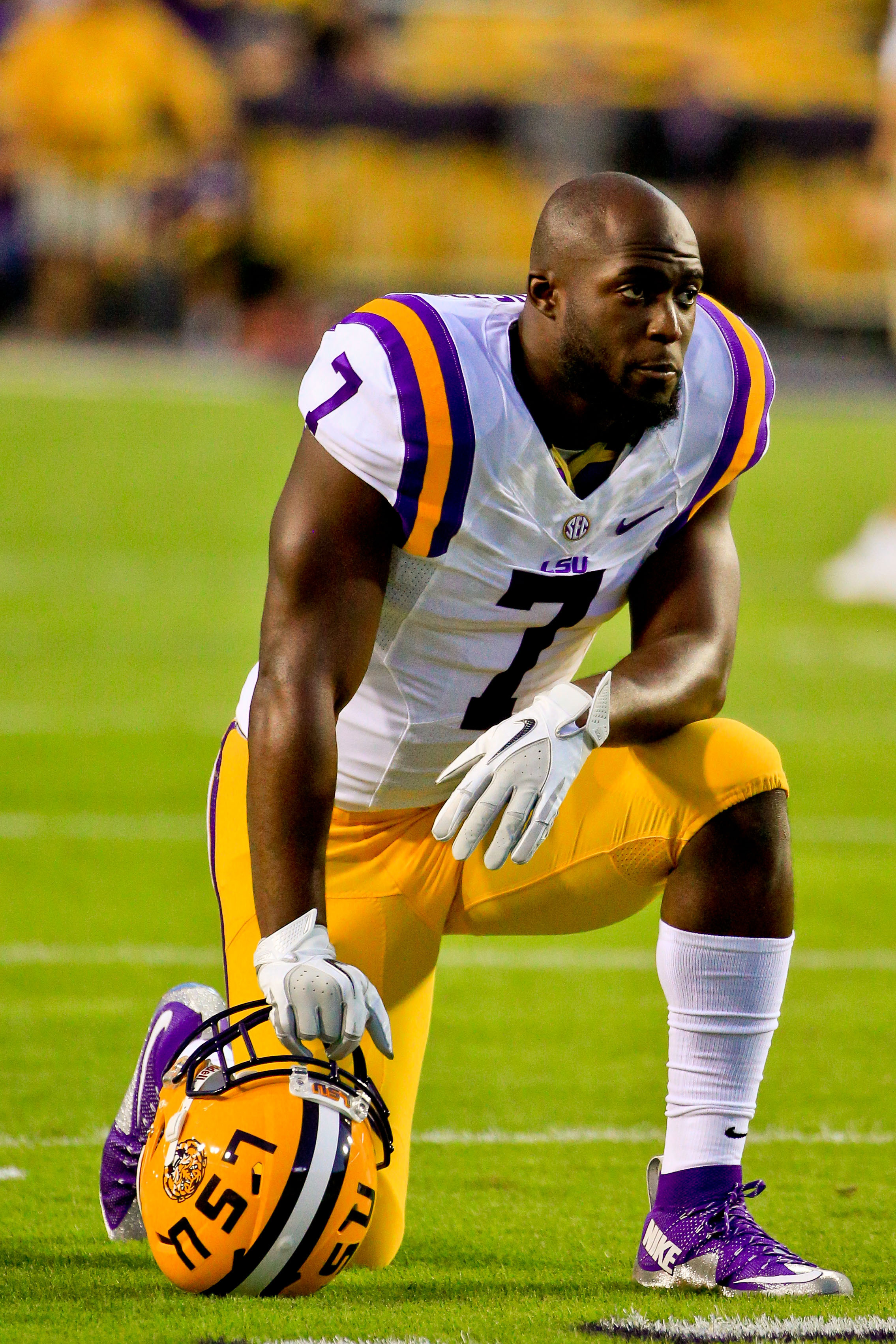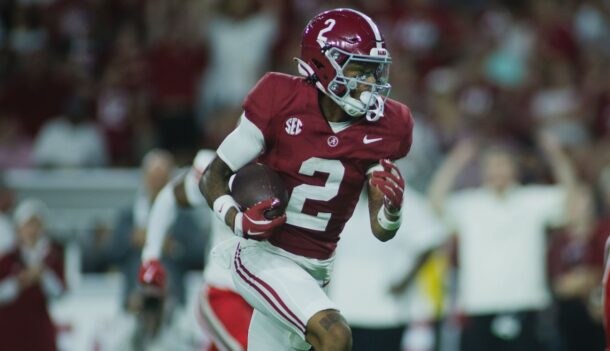
5 things that went right for LSU in regular season … and 3 that didn’t
By Gary Laney
Published:
BATON ROUGE, La. — We never saw a healthy Leonard Fournette.
And we only saw a third of a season from the head coach.
Those are clues that not a lot went right for an LSU team that went 7-4 in a season where it thought it might be a College Football Playoff team.
And, truth be told, LSU was a lot closer than the record indicates, as the Tigers were three plays from being 10-1.
But through it all, we saw Les Miles get fired and Ed Orgeron get the job, first on an interim basis, then with the “interim” title lifted. And we never saw Founette running full speed towards his Heisman Trophy ambitions.
But we did see another running back set up a Heisman candidacy for next year.
Here are five things that went right during the regular season … and three things that didn’t.
5 things that went right
1. Dave Aranda revitalized the defense: Miles’ last big hire proved to be one of his best. Dave Aranda has proven to be a home run hire as defensive coordinator.
Even with an injury-riddled defense allowing 39 points to Texas A&M in the season finale, LSU finished seventh in the nation in scoring defense (16.4) and 12th in total defense (323 ypg). It held Alabama to a season-low 10 points — the only time this season the Tide failed to score at least 30.
Granted, Aranda was handed a talented group to work with that featured seniors on all three levels, but they quickly learned his 3-4 base and added enough wrinkles to keep offenses guessing. Aranda added to his reputation as one of the country’s best defensive coordinators and LSU added to its reputation as a program with great defenses.
2. Derrius Guice had his coming out: The down side to backing up a legend is you don’t get to show your talents as much.
Well, Fournette’s recurring ankle injury gave Guice the opportunity, and did he ever take advantage. Despite starting only five of LSU’s 11 games, he finished second in the SEC in rushing (113.5 yards per game) despite several games where he clearly played second fiddle to Fournette (for example, he had but two carries against Alabama).

He’s been good enough to put himself into next year’s Heisman Trophy discussion and — even crazier locally — he has some wondering if he’s better than Fournette. That’s an unfair discussion — we’re comparing him to a damaged version of Fournette this year — but he certainly played well enough to make that a legitimate conversation.
3. The Les Miles thing played out: It became clear, in retrospect, that Miles had become one of those aging coaches who might have been too set in his ways. So when LSU dismissed him after a 2-2 start where the Tigers were, to put it kindly, offensively challenged, it was the best thing for all parties.
LSU gets to move on with a fresh start. And, by losing his job, Miles can potentially end up somewhere else with lessons learned. He wouldn’t change at LSU. Right now, his selling point to other potential employers is that he has changed.
Here’s hoping the parting of ways works for LSU and works to revitalize the end of Miles’ career. He’s a Hall of Fame, national championship-caliber coach. Hopefully, he can prove he changed with the times at a new school.
4. The offense showed some diversity: After Miles’ departure, the offense diversified and showed some promise under interim offensive coordinator Steve Ensminger.
In seven games under Ensminger, LSU averaged 32.4 points per game. Projected over the course of the entire season, that would make the Tigers’ scoring offense fifth in the SEC ahead of Auburn and just behind Ole Miss.
In the process, the Tigers’ showed they are able to throw the ball to balance the running game and they can run the ball outside of the power sets that Miles’ favored. In short, the Tigers were not one-dimensional.
Ensminger did this with precious little time to install his vision. He won’t be the offensive coordinator after LSU’s bowl, but he did a pretty good job when the job was his.
5. The seniors had good years: One of the disappointments of the season is that so many talented seniors came back with the hopes of winning a national championship, but that did not happen for them.
But neither did coming back hurt their pro prospects. One can argue that cornerback Tre’Davious White might have helped his pro stock a little by coming back to school. And linebacker Kendell Beckwith, defensive end Lewis Neal and center Ethan Pocic weren’t hurt by staying in school.
That’s huge as LSU shifts away from emphasizing the three-year cycle to prospects with pro aspirations. Certainly, sure-bet juniors like Leonard Fournette and Jamal Adams will start making their living at this game next year.
But the good experience this year’s seniors had may help convince more marginal juniors — like defensive tackle Davon Godchaux (who is likely a lean toward leaving) and wide receiver Malachi Dupre — to stick around another year.
3 things that didn’t
1. The timing of Miles’ departure: While it was probably best for everybody that the Miles era ended, it was unfortunate it dragged on into a promising season.
The reasons Miles was on the hot seat — namely, offense, offense and offense — were still huge issues during the 2-2 start that included losses to Wisconsin and Auburn where the Tigers managed just 24 points in the two games. After that, LSU fired Miles, but the damage was largely already done.

Even after Miles and offensive coordinator Cam Cameron departed, Orgeron and Ensminger were somewhat hampered by having to make changes on the fly and within the context of the offense that was already installed under Miles and Cameron.
It would have been interesting to see how different the offense might have been if Orgeron and Ensminger had a full August camp to install their offense, their way.
2. Any close game: If this football team was a baseball team, you’d have to say they lacked late-inning relief. And clutch-hitting.
Enough metaphor mixing. This was a team that could not find ways to close games. Three times did LSU have the ball at the end with a chance to win. Florida denied the Tigers with a goal-line stand. LSU ran out of time against Auburn, negating a would-be winning touchdown. And the Tigers’ saw a potential game-winning drive stalled by an interception against Wisconsin.
If LSU finishes those three drives, they are 10-1 and looking at a playoff berth. But, 7-4 is what happens to really good teams that can’t close.
And LSU won just one close game, a 23-20 win over Mississippi State where the Tigers had the game salted away, only to see the Bulldogs score twice late and put a scare in the Tigers. The other six wins were by an average of 25.2 points per game.
3. Health: Let’s start with Fournette, who went from a legitimate Heisman Trophy candidate to a guy who was limited to seven games by injury and zero games where the injury — the dreaded high-ankle sprain — allowed him to play at full health.
But that’s the tip of the iceberg. Defensive tackle Christian LaCouture — the one senior who probably wishes he had gone pro — suffered a season-ending knee injury in August. The offensive line stayed banged up, a fact that really caught up to the Tigers in a 10-0 shutout loss to Alabama where the offensive line was simply dominated.
But we will always wonder what this season would have been like if Fournette was healthy. He rushed for 843 yards — 120.4 yards per game — when he did play, and he never played anywhere near 100 percent, even when he set a school record with 284 yards rushing against Ole Miss.







